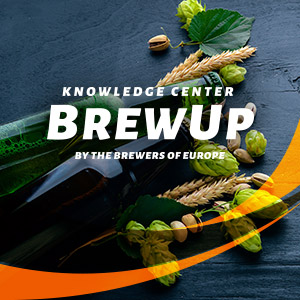
- advocate
- 24/12/2017
- 552
- Positive contribution to the EU economy
Beer Serves Europe - Let's treat it fairly
This Infographic explains why Europe’s brewers call for a sustainable tax regime.

This Infographic explains why Europe’s brewers call for a sustainable tax regime.
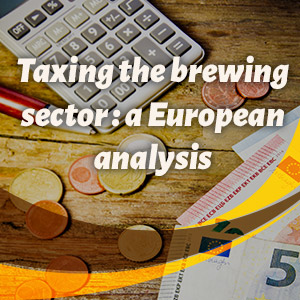
This report analyses the impact of changes in excise taxes across the European Union (EU). The analysis considers the impact on consumption, Government revenues, profitability in the brewing sector and direct and indirect employment. It also studies the comparable costs in the route to market for the different categories of alcoholic beverages across the European Union. The focus of that part of the report has been on the main drinks categories, being beer, wine and spirits.
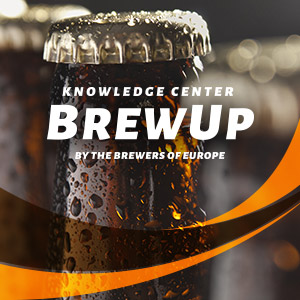
This report provides for an assessment of the economic contribution of the hospitality sector across 31 European countries.
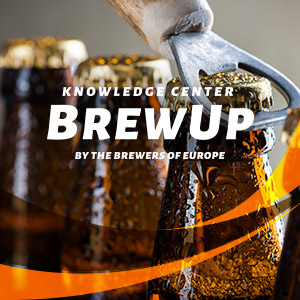
This Infographics highlight the decreasing trends in underage drinking over the last 12 years in European countries. They are based on the publicly available data from the Health Behaviours in School-aged Children, a project supported by WHO Europe that collects a set of comparable data throughout European countries.
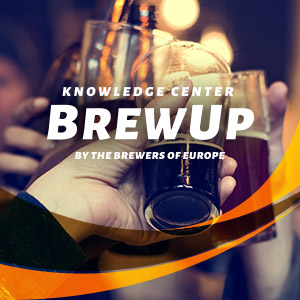
This report contains information from the 2007 / 2008 survey of drinking and driving undertaken by the Worldwide Brewing Alliance (WBA).

This survey assesses the effect of price increases of alcoholic beverages on consumers’ purchasing and drinking patterns and European citizens’ perceptions of the most effective measures to help reduce alcohol-related harm.

This report provides an analysis of European consumers’ information needs and preferences regarding alcoholic beverages. The results show that whilst consumers’ knowledge of the nutritional value and ingredient information of alcoholic beverages is very limited, there is interest to receive this kind of information, and an interest in accessing it through off-label channels such as websites and applications.
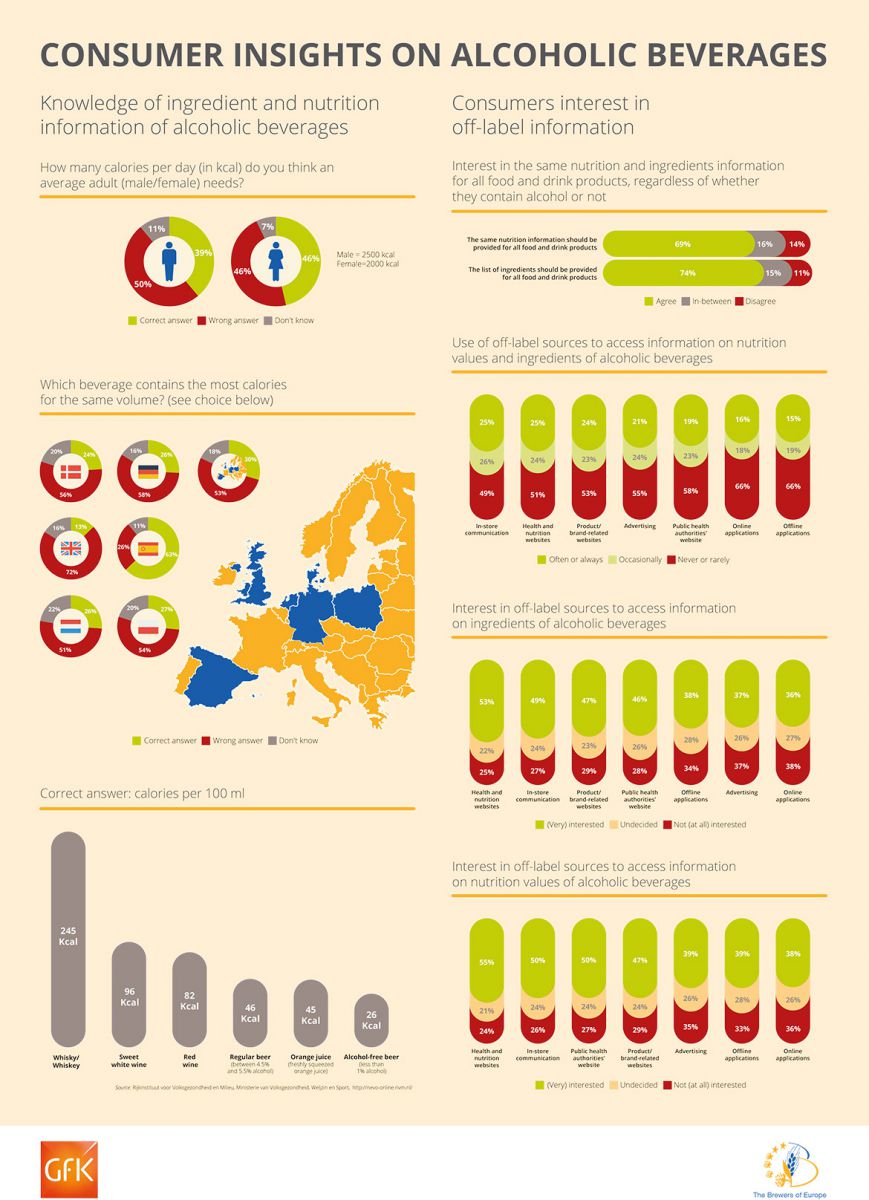
This Infographic sums up at a glance the most striking findings from the GfK report “Consumer Insights: Knowledge of Ingredient and Nutrition Information of Alcoholic Beverages, Off-Label Information and its Use”.
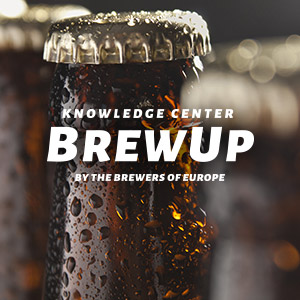
This follow-up study builds upon a previous consumer survey done in 2014 in 6 European countries and released in March 2015. It specifically examines consumers’ call for receiving the same ingredients and nutrition information for all alcoholic beverages as currently provided on all other food and drink products, the interest in the ingredients information, the calorie information and the full nutrition information on alcoholic beverages as well as the different information sources that consumers would like to use to access this information. GfK Belgium conducted the follow-up online survey in nine different European Union countries in April 2016. The nine countries were selected as representative of the European Union and its different regions, ensuring a balanced geographical spread. These nine EU countries were Germany, Poland, Denmark, the Netherlands, Spain, the United Kingdom, Italy, France and Romania. In total, they account for approximately 78% of the total European population2 and about a third of all EU Member States.

This Infographic sums up at a glance the most striking findings from the GfK report 2016.

In this report, commissioned by The Brewers of Europe, the Swedish Retail Institute, HUI, has analysed the success and failures of Swedish alcohol policy. The Swedish Retail Institute, HUI, was founded in 1968 and is owned by The Swedish Trade Federation. HUI conducts its research activity together with several external researchers and in cooperation with a number of Swedish universities. HUI is well-known in the Swedish society for its seriousity, integrity and independence

This study researches and analyses the trend and significance of global trade and investment patterns by the EU brewing sector since the 1990s, when the formation of EU contributed significantly to liberalisation in the global trade system. It identifies and establishes important contributing factors to the past and emerging trends such as trade liberalisation agreements, urbanisation, logistics and communications, supply chains efficiencies, consumption patterns and so on. It provides strategic insights on the future of the EU brewing sector in identifying trade strategies to maintain global competitiveness and to open new markets.

This report constitutes the third review of the implementation of the Beer Pledge and looks back over the whole 2012-2015 period of the Pledge. It represents a snapshot of initiatives carried out by brewers, through associations, companies and broad coalitions, in line with and contributing to, the implementation of the three pillars of the European Beer Pledge – (i) consumer information, (ii) responsible advertising, and (iii) programs to tackle alcohol misuse.
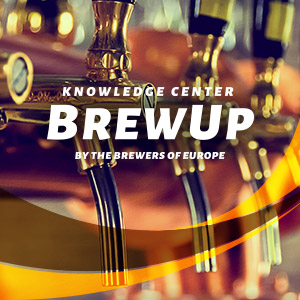
This is the first interim report on the implementation of The Brewers of Europe’s commitments to the European Alcohol and Health Forum. It covers the first two commitment waves, made in December 2007 and July 2008, and offers the reader an overview of the background, baseline, progress and next steps in relation to the 25 commitments so far filed.

This report collects the social responsibility activities of the brewing sector throughout the world. It was published in 2007.

This Toolkit has been designed to help trade associations at national level, brewers and any stakeholders wishing to team-up to prevent drink-driving. It provides for structural and practical advice and best-practices and builds upon concrete examples of actions that have been run or are still run on the ground to prevent drink-driving.

This report aims at providing a better understanding of areas for which there appeared to be conflicting views or ambiguity in the scientific literature in 2006 (European Cultural Differences and Alcohol Consumption; Total Consumption of Alcohol and Drinking Patterns: Implications for Harm; Risks and Benefits of Alcohol Consumption: The Role of Moderate Drinking; Adverse Social Consequences of Alcohol Consumption; and Influences on Adolescence Drinking.)

This is the 2016 edition of The Brewers of Europe “The Contribution made by Beer to the European Economy” that shows the importance of beer to the European economy, elaborating on its importance for the agricultural and supply sector, for the hospitality sector and to government revenues. It provides data with regards to the direct and indirect employment generated by the brewing sector.
Other editions are available for download

This Factsheet provides for background elements, drawing from peer-reviewed articles and grey literature, on the lack of impact of advertising bans to reduce alcohol-related harm.

This Factsheet provides for background elements, drawing from peer-reviewed articles and grey literature, on beer advertising self-regulation.

This Factsheet provides for background elements, drawing from peer-reviewed articles and grey literature, showing people do not misuse alcohol because of alcohol advertising.

This Factsheet provides for background elements, drawing from peer-reviewed articles and grey literature, on the impact of parents and peers on children’s and adolescents’ drinking behaviour.

That study focuses on the economic impact of high excise duties and/or the changes in excise duty implemented by national governments.

This Factsheet provides for background elements with regards to ingredient and nutrition information on alcoholic beverages

This Factsheet provides for background elements with regards to the use of labels and online platform to convey food information to consumers, including ingredient and nutrition information

This Toolkit has been designed to help trade associations at national level, brewers and any stakeholders wishing to team-up to inform consumers about drinking and pregnancy. It provides for structural and practical advice and best-practices and builds upon concrete examples of actions that have been run or are still run on the ground to inform consumers about drinking and pregnancy.
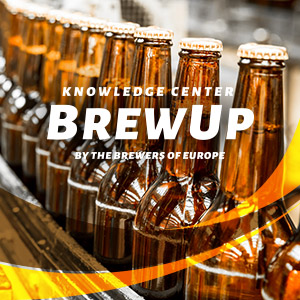
This Toolkit has been designed to help trade associations at national level, brewers and any stakeholders wishing to team-up to prevent underage drinking. It provides for structural and practical advice and best-practices and builds upon concrete examples of actions that have been run or are still run on the ground to prevent underage

This Toolkit has been designed to help trade associations at national level, brewers and any stakeholders wishing to team-up to prevent binge drinking. It provides for structural and practical advice and best-practices and builds upon concrete examples of actions that have been run or are still run on the ground to prevent drink driving.

This document presents The Brewers of Europe’s position on “Regulating Price for Health Purpose”.

This report measures the extent to which brewers of all sizes, across Europe, contribute to supporting the local communities through the sponsorship of different projects in different fields such as sports, culture, art…

This is the report on The Brewers of Europe’s commitment on self-regulation of commercial communications for beer, as submitted to the European Alcohol and Health Forum in 2007.

This document presents The Brewers of Europe’s position on “Carbon Footprint and Labelling”

This report evaluates Rand Europe’s publication “The affordability of alcoholic beverages in the European Union”.

This report provides an overview of the results of EASA’s coordinated monitoring compliance exercise with self-regulatory organisations across Europe on advertisements for beers that appeared in 2007
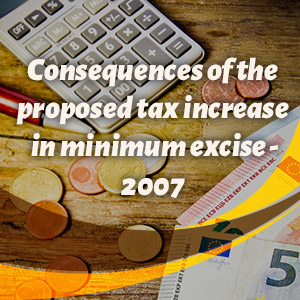
This report examines the consequences on the brewing sector of the proposed tax increase in minimum excise in 2007.

This Briefing Document on beer advertising provides for background information on beer advertising and the self-regulation mechanisms as of 2007.

This Report, covering the 2005 25 EU Member States together with Bulgaria, Norway, Romania, Switzerland and Turkey, concentrates on the self-regulatory and legislative environment for commercial communications.
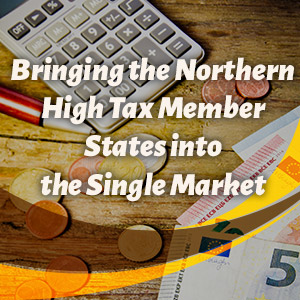
This report from 2004 called the Northern High Tax Member States to moderate their excise duty level on beer.